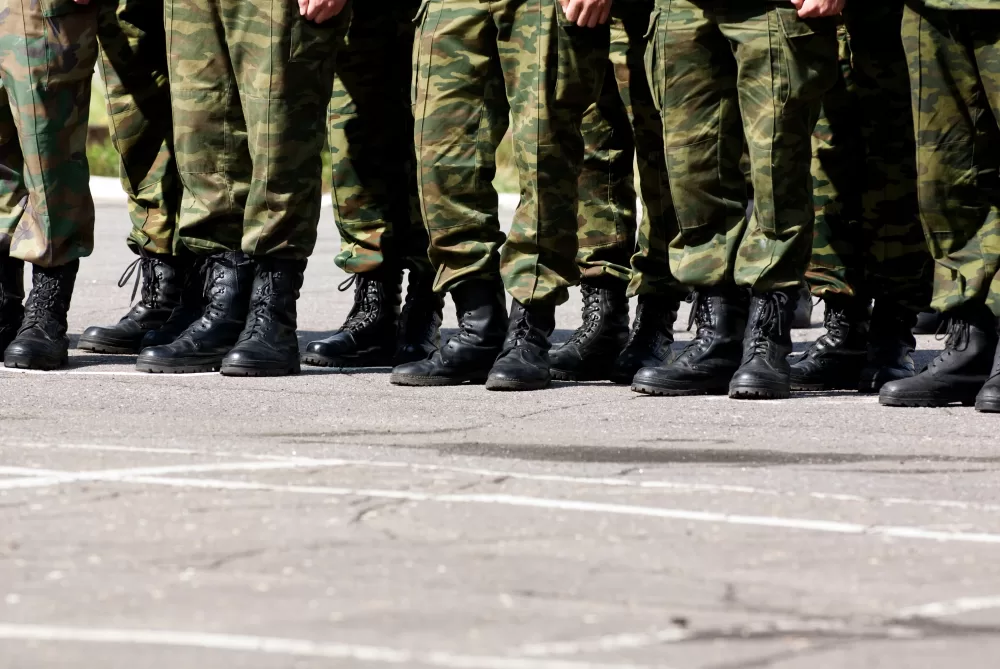Camp Lejeune, one of the largest Marine Corps bases in the world, was established shortly before the United States entered World War II. In September 1941, barely three months before Pearl Harbor, the 1st Marine Division temporarily encamped in the middle of a wooded area near a sandy beach in North Carolina. The installation’s rapid growth may have caused later Camp Lejeune water contamination.
In 1942, American military planners believed that amphibious invasions of Europe and Japan would probably be necessary. The miles and miles of flat, isolated beaches in that area made Camp Lejeune, named for the 13th USMC commandant, an ideal early staging area for amphibious warfare training.

Millions of service members, military contractors, and civilians have passed .Camp Lejeune. Most of them have fond memories of the facility. But the base has a dark side as well. Black Marines were trained at a segregated facility, which was then called Montfort Point. The long-term segregation harmed many Black service members and their families. The long-term water contamination at Camp Lejeune harmed even more residents, regardless of their ethnicity.
Officials at Camp Lejeune had a hard time coming to terms with segregation. They had an even harder time coming to terms with water poisoning issues. For decades, the Marines denied the problem and denied compensation to victims. The 2022 Camp Lejeune Justice Act (CLJA) gave these environmental poisoning victims a one-time opportunity to have their day in court. The Action Matters team gives these victims additional information about this lawsuit.
Where is Camp Lejeune?
Camp Lejeune is on the North Carolina coast, not far from Jacksonville. The 246-square-mile facility is the largest Marine Corps base on the eastern seaboard. Roughly 135,000 people live on or near Camp Lejeune. If this facility were a city, it would be one of the 10 largest cities in North Carolina and almost twice as large as Jacksonville.

Camp Lejeune has been a large facility for many years. Therefore, many pundits believe that over a million people will join the Camp Lejeune water contamination lawsuit before the eligibility window closes in August 2024.
The facility is still an essential amphibious warfare base. The Marine Corps Engineers and the Marine Special Operations Support Unit also have a significant presence at Camp Lejeune.
What Goes On at Camp Lejeune?
These activities have led to some tragedies. We mentioned discrimination at Camp Lejeune above. In 1969, a bar fight between white and Black Marines injured 15 people. Additionally, in 1996, 14 people died in a helicopter crash during a joint U.S./British military exercise.
More recently, between 2000 and 2020, most Camp Lejeune Marines trained for operations in Iraq, Afghanistan, and other battlegrounds in the Global War on Terror. Today, Camp Lejeune Marines must be ready for anything, as the Marines are often the tip of the spear in global conflicts.
Furthermore, the base’s accessible yet isolated location makes it ideal for military exercises, especially joint military exercises with allied countries.

All these operations require many vehicles, ordinances and other military equipment. Over the decades, the chemicals in this equipment leached into the local water supply. These chemicals include:
- Trichloroethylene: TCE is an industrial solvent and degreaser. Before 1980, this chemical was also a hospital anesthetic and a key ingredient in processed foods. TCE is highly toxic. Effects include heart problems and cranial nerve issues.
- Benzene: This chemical has been used in plastics, resins, nylons, and synthetic fibers since the 1860s. Benzene use dipped after 1948 when researchers connected it with health problems like acute leukemia, bone marrow abnormalities, aplastic anemia, and cardiovascular disease. But it’s still legal to use in most cases.
- Tetrachloroethylene: PCE is closely related to TCE. It has the same uses and side effects. Both these chemicals degrade to vinyl chloride, a hazardous chemical with no known benefits.
All these chemicals are known carcinogens, and they have been found in Camp Lejeune’s contaminated water. Residents used this water for drinking, bathing and washing.
Who is Eligible to Join the Camp Lejeune Water Contamination Suit?
The aforementioned Camp Lejeune Justice Act isn’t the first such law. In 2012, then-President Obama signed the Janey Ensminger Act, which allowed some Camp Lejeune water contamination victims to sue for damages.
However, this law was narrowly tailored. It only applied if the victim was diagnosed with one of 15 illnesses. Additionally, it only applied to people who permanently resided at Camp Lejeune between 1957 and 1987.

Toxic exposure cancer has at least a 30-year latency period. Therefore, many people who got sick in the 1980s may only now show some signs of illness. The CLJA applies to a much broader array of diseases. The CLJA also dropped the “permanent residence” requirement. Victims could join the new lawsuit if they lived at Camp Lejeune for at least 30 days between 1957 and 1987.
Unless they only used bottled or municipal water, these victims were most likely exposed to toxic chemicals. In many cases, a tiny amount of these dangerous chemicals is enough to cause cancer or another severe illness.
In short, if you passed through Camp Lejeune between 1957 and 1987, and a doctor says you might have cancer or another serious illness, you should consider contacting Action Matters to learn more about your legal options. Cancer and other severe chronic illness treatments cost thousands of dollars a month. The latest Camp Lejeune water contamination lawsuit may be your only chance to obtain the compensation you need and deserve.